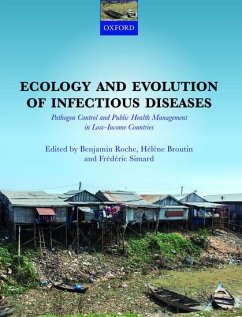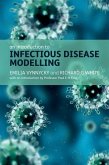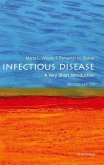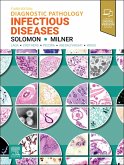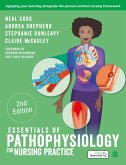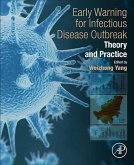Ecology and Evolution of Infectious Disease
Pathogen Control and Public Health Management in Low-Income Countries
Herausgeber: Roche, Benjamin; Simard, Frederic; Broutin, Helene
Ecology and Evolution of Infectious Disease
Pathogen Control and Public Health Management in Low-Income Countries
Herausgeber: Roche, Benjamin; Simard, Frederic; Broutin, Helene
- Gebundenes Buch
- Merkliste
- Auf die Merkliste
- Bewerten Bewerten
- Teilen
- Produkt teilen
- Produkterinnerung
- Produkterinnerung
Provides an up-to-date, authoritative, and challenging review of the ecology and evolution of infectious diseases, focusing on low-income countries for effective public health applications and outcomes.
Andere Kunden interessierten sich auch für
![An Introduction to Infectious Disease Modelling An Introduction to Infectious Disease Modelling]() Emilia Vynnycky (Senior scientist, Health Protection Agency, CentreAn Introduction to Infectious Disease Modelling63,99 €
Emilia Vynnycky (Senior scientist, Health Protection Agency, CentreAn Introduction to Infectious Disease Modelling63,99 €![Infectious Disease Epidemiology Infectious Disease Epidemiology]() Laura RodriguesInfectious Disease Epidemiology103,99 €
Laura RodriguesInfectious Disease Epidemiology103,99 €![Infectious Disease Infectious Disease]() Marta Wayne (Professor of Biology, Professor of Biology, UniversityInfectious Disease17,99 €
Marta Wayne (Professor of Biology, Professor of Biology, UniversityInfectious Disease17,99 €![Diagnostic Pathology: Infectious Diseases Diagnostic Pathology: Infectious Diseases]() Solomon, Isaac H., MD, PhD (Department of Pat Associate PathologistDiagnostic Pathology: Infectious Diseases291,99 €
Solomon, Isaac H., MD, PhD (Department of Pat Associate PathologistDiagnostic Pathology: Infectious Diseases291,99 €![Essentials of Pathophysiology for Nursing Practice Essentials of Pathophysiology for Nursing Practice]() Neal CookEssentials of Pathophysiology for Nursing Practice168,99 €
Neal CookEssentials of Pathophysiology for Nursing Practice168,99 €![Early Warning for Infectious Disease Outbreak Early Warning for Infectious Disease Outbreak]() Weizhong Yang (Deputy director of Chinese Center for Dis ProfessorEarly Warning for Infectious Disease Outbreak156,99 €
Weizhong Yang (Deputy director of Chinese Center for Dis ProfessorEarly Warning for Infectious Disease Outbreak156,99 €![Incurable Us Incurable Us]() K. P. StollerIncurable Us28,99 €
K. P. StollerIncurable Us28,99 €-
-
-
Provides an up-to-date, authoritative, and challenging review of the ecology and evolution of infectious diseases, focusing on low-income countries for effective public health applications and outcomes.
Hinweis: Dieser Artikel kann nur an eine deutsche Lieferadresse ausgeliefert werden.
Hinweis: Dieser Artikel kann nur an eine deutsche Lieferadresse ausgeliefert werden.
Produktdetails
- Produktdetails
- Verlag: Oxford University Press
- Seitenzahl: 336
- Erscheinungstermin: 24. Juli 2018
- Englisch
- Abmessung: 249mm x 193mm x 23mm
- Gewicht: 882g
- ISBN-13: 9780198789833
- ISBN-10: 0198789831
- Artikelnr.: 50849584
- Herstellerkennzeichnung
- Libri GmbH
- Europaallee 1
- 36244 Bad Hersfeld
- gpsr@libri.de
- Verlag: Oxford University Press
- Seitenzahl: 336
- Erscheinungstermin: 24. Juli 2018
- Englisch
- Abmessung: 249mm x 193mm x 23mm
- Gewicht: 882g
- ISBN-13: 9780198789833
- ISBN-10: 0198789831
- Artikelnr.: 50849584
- Herstellerkennzeichnung
- Libri GmbH
- Europaallee 1
- 36244 Bad Hersfeld
- gpsr@libri.de
Benjamin Roche is a researcher at the French National Research Institute for Sustainable Development (IRD) in Montpellier, France. His work has mostly focused on the study of diversity involved in infectious diseases, from diversity of hosts (i.e., dilution effect) to the diversity of pathogens (through phylodynamics of influenza viruses) through diversity of transmission modes (consequences of direct and environmental transmission of influenza viruses and Buruli ulcer). He is also working on vector control strategies against Chikungunya in French overseas territory and on prevention strategies against Buruli ulcer in Cameroon. He is leading an international project aiming to develop an innovative conceptual and methodological framework to envision optimal public health strategies. He has published more than 60 papers in leading international journals. Hélène Broutin is a researcher at CNRS (the French National Center of Scientific Research) working on the ecology of infectious diseases. She is currently based at the University Cheikh Anta Diop of Dakar, Senegal. Her principal research focuses on vaccine preventable diseases in low income countries, mainly in Africa. She uses a multidisciplinary approach to identify the determinants (environmental, genetics, genetic, and population) that drive the transmission dynamics of infectious diseases, and the impact of vaccination, with a specific focus on meningitis, respiratory infections, pertussis, and measles. The final goal of her research is to help improve vaccine strategies for a better control of diseases in the long term in low income countries. She is a member of the steering committee of MERIT (Meningitis Environmental Risk Information Technologies), an international experts group on meningitis in Africa led by WHO. She has published more than 20 papers in international journals. Frederic Simard is an expert in vector biology and control working at the French National Research Institute for Sustainable Development (IRD) in Montpellier, France. He has spent 15 years in tropical Africa exploring the population biology, ecology, and genetics of major mosquito disease vectors. Bridging field and lab studies, medical entomology and evolution, he has been interested in exploring issues related to local adaptation, speciation, and transmission. He has published more than 160 papers in peer-reviewed journals in diverse areas of molecular biology and evolution, genetics and genomics, vector control, and tropical medicine. He is a member of the editorial board of several scientific journals and participates in scientific and advisory committees for various national and international institutions. In 2015, he was appointed Director of the MIVEGEC research unit for 6 years by IRD, CNRS, and the University of Montpellier.
* Preface
* 1: Benjamin Roche, Thierry Baldet and Frédéric Simard: Infectious
diseases in low-income countries: Where are we now?
* 2: Frédéric Pagès, Dominique Maison and Michael Faulde: Current
control strategies for infectious diseasesin low income countries
* 3: Rebecca Grais: Research in crises: overcoming obstacles and
lessons for the future
* Afterword I: The burden
* 4: Cécile Viboud, Hélène Broutin and Gerardo Chowell:
Spatial-temporal transmission dynamics and control of infectious
diseases: Ebola virus disease (EVD) as a case study
* 5: Rodolphe E. Gozlan and Marine Combe: Environmental change and
pathogen transmission
* 6: Anne-Laure Bañuls, Van Anh Thi Nguyen, Quang Huy Nguyen, Ngoc Anh
Thi Nguyen, Hoang Huy Tran and Sylvain Godreuil: Antimicrobial
resistance: the 70-year arms race between Humans and Bacteria
* 7: Jessica Lynn Webster and Marco Vignuzzi: Viral evolution and
impact for public health strategies in low-income countries
* Afterword II: Fundamental knowledge
* 8: Matthew Ferrari: Using Disease Dynamics and Modeling to Inform
Control Strategies in Low-Income Countries
* 9: Paul W. Ewald: Evolutionary control of infectious disease in
low-income countries
* 10: Mathieu Nacher: Using pathogen interactions: challenges and
opportunities
* 11: Patrick Mavingui, Claire Valiente Moro and Pablo Tortosa:
Exploiting symbiotic interactions for vector/disease control
* 12: Heather Ferguson, Patrick Brock and Steve Torr: Host species
diversity and the transmission of vector-borne disease in low income
countries
* Afterword III: Tunable methods
* 13: Marco Pombi, David Modiano and Gilberto Corbellini: Malaria
eradication in Italy: the story of a first success
* 14: Andres Garchitorena, Matthew H. Bonds, Jean-Francois Guégan and
Benjamin Roche: Interactions between ecological and socio-economic
drivers of Buruli ulcer burden in sub-Saharan Africa. Opportunities
for an improved control.
* 15: Isabel Jones, Andrea Lund, Gilles Riveau, Nicolas Jouanard,
Raphael A. Ndione, Susanne H. Sokolow and Giulio A. De Leo:
Ecological control of schistosomiasis in Sub-Saharan Africa:
restoration of predator-prey dynamics to reduce transmission
* Afterword IV: Case studies
* 16: Eve Miguel, Florence Fournet, Serge Yerbanga, Nicolas Moiroux,
Franck Yao, Timothée Vergne, Bernard Cazelles, Roch K. Dabiré,
Frédéric Simard and Benjamin Roche: Optimizing public health
strategies in low-income countries: Epidemiology, ecology and
evolution for the control of malaria.
* 17: Jan Slingenbergh, Giuliano Cecchi and Marjan Leneman: Human
activities and disease transmission: the agriculture case
* 18: Matthew H. Bonds, Andres Garchitorena, Paul E. Farmer and Megan
B. Murray: Ecology of Poverty, Disease and Health Care Delivery:
Lessons for Planetary Health
* 19: Dominique Kerouedan: African and global health care prospects:
The importance of the use of knowledge
* 20: Benjamin Roche, Hélène Broutin and Frédéric Simard, on behalf of
all authors: Optimizing public health strategies in low-income
countries: The challenge to apply the scientific knowledge and for
which disease?
* Afterword
* 1: Benjamin Roche, Thierry Baldet and Frédéric Simard: Infectious
diseases in low-income countries: Where are we now?
* 2: Frédéric Pagès, Dominique Maison and Michael Faulde: Current
control strategies for infectious diseasesin low income countries
* 3: Rebecca Grais: Research in crises: overcoming obstacles and
lessons for the future
* Afterword I: The burden
* 4: Cécile Viboud, Hélène Broutin and Gerardo Chowell:
Spatial-temporal transmission dynamics and control of infectious
diseases: Ebola virus disease (EVD) as a case study
* 5: Rodolphe E. Gozlan and Marine Combe: Environmental change and
pathogen transmission
* 6: Anne-Laure Bañuls, Van Anh Thi Nguyen, Quang Huy Nguyen, Ngoc Anh
Thi Nguyen, Hoang Huy Tran and Sylvain Godreuil: Antimicrobial
resistance: the 70-year arms race between Humans and Bacteria
* 7: Jessica Lynn Webster and Marco Vignuzzi: Viral evolution and
impact for public health strategies in low-income countries
* Afterword II: Fundamental knowledge
* 8: Matthew Ferrari: Using Disease Dynamics and Modeling to Inform
Control Strategies in Low-Income Countries
* 9: Paul W. Ewald: Evolutionary control of infectious disease in
low-income countries
* 10: Mathieu Nacher: Using pathogen interactions: challenges and
opportunities
* 11: Patrick Mavingui, Claire Valiente Moro and Pablo Tortosa:
Exploiting symbiotic interactions for vector/disease control
* 12: Heather Ferguson, Patrick Brock and Steve Torr: Host species
diversity and the transmission of vector-borne disease in low income
countries
* Afterword III: Tunable methods
* 13: Marco Pombi, David Modiano and Gilberto Corbellini: Malaria
eradication in Italy: the story of a first success
* 14: Andres Garchitorena, Matthew H. Bonds, Jean-Francois Guégan and
Benjamin Roche: Interactions between ecological and socio-economic
drivers of Buruli ulcer burden in sub-Saharan Africa. Opportunities
for an improved control.
* 15: Isabel Jones, Andrea Lund, Gilles Riveau, Nicolas Jouanard,
Raphael A. Ndione, Susanne H. Sokolow and Giulio A. De Leo:
Ecological control of schistosomiasis in Sub-Saharan Africa:
restoration of predator-prey dynamics to reduce transmission
* Afterword IV: Case studies
* 16: Eve Miguel, Florence Fournet, Serge Yerbanga, Nicolas Moiroux,
Franck Yao, Timothée Vergne, Bernard Cazelles, Roch K. Dabiré,
Frédéric Simard and Benjamin Roche: Optimizing public health
strategies in low-income countries: Epidemiology, ecology and
evolution for the control of malaria.
* 17: Jan Slingenbergh, Giuliano Cecchi and Marjan Leneman: Human
activities and disease transmission: the agriculture case
* 18: Matthew H. Bonds, Andres Garchitorena, Paul E. Farmer and Megan
B. Murray: Ecology of Poverty, Disease and Health Care Delivery:
Lessons for Planetary Health
* 19: Dominique Kerouedan: African and global health care prospects:
The importance of the use of knowledge
* 20: Benjamin Roche, Hélène Broutin and Frédéric Simard, on behalf of
all authors: Optimizing public health strategies in low-income
countries: The challenge to apply the scientific knowledge and for
which disease?
* Afterword
* Preface
* 1: Benjamin Roche, Thierry Baldet and Frédéric Simard: Infectious
diseases in low-income countries: Where are we now?
* 2: Frédéric Pagès, Dominique Maison and Michael Faulde: Current
control strategies for infectious diseasesin low income countries
* 3: Rebecca Grais: Research in crises: overcoming obstacles and
lessons for the future
* Afterword I: The burden
* 4: Cécile Viboud, Hélène Broutin and Gerardo Chowell:
Spatial-temporal transmission dynamics and control of infectious
diseases: Ebola virus disease (EVD) as a case study
* 5: Rodolphe E. Gozlan and Marine Combe: Environmental change and
pathogen transmission
* 6: Anne-Laure Bañuls, Van Anh Thi Nguyen, Quang Huy Nguyen, Ngoc Anh
Thi Nguyen, Hoang Huy Tran and Sylvain Godreuil: Antimicrobial
resistance: the 70-year arms race between Humans and Bacteria
* 7: Jessica Lynn Webster and Marco Vignuzzi: Viral evolution and
impact for public health strategies in low-income countries
* Afterword II: Fundamental knowledge
* 8: Matthew Ferrari: Using Disease Dynamics and Modeling to Inform
Control Strategies in Low-Income Countries
* 9: Paul W. Ewald: Evolutionary control of infectious disease in
low-income countries
* 10: Mathieu Nacher: Using pathogen interactions: challenges and
opportunities
* 11: Patrick Mavingui, Claire Valiente Moro and Pablo Tortosa:
Exploiting symbiotic interactions for vector/disease control
* 12: Heather Ferguson, Patrick Brock and Steve Torr: Host species
diversity and the transmission of vector-borne disease in low income
countries
* Afterword III: Tunable methods
* 13: Marco Pombi, David Modiano and Gilberto Corbellini: Malaria
eradication in Italy: the story of a first success
* 14: Andres Garchitorena, Matthew H. Bonds, Jean-Francois Guégan and
Benjamin Roche: Interactions between ecological and socio-economic
drivers of Buruli ulcer burden in sub-Saharan Africa. Opportunities
for an improved control.
* 15: Isabel Jones, Andrea Lund, Gilles Riveau, Nicolas Jouanard,
Raphael A. Ndione, Susanne H. Sokolow and Giulio A. De Leo:
Ecological control of schistosomiasis in Sub-Saharan Africa:
restoration of predator-prey dynamics to reduce transmission
* Afterword IV: Case studies
* 16: Eve Miguel, Florence Fournet, Serge Yerbanga, Nicolas Moiroux,
Franck Yao, Timothée Vergne, Bernard Cazelles, Roch K. Dabiré,
Frédéric Simard and Benjamin Roche: Optimizing public health
strategies in low-income countries: Epidemiology, ecology and
evolution for the control of malaria.
* 17: Jan Slingenbergh, Giuliano Cecchi and Marjan Leneman: Human
activities and disease transmission: the agriculture case
* 18: Matthew H. Bonds, Andres Garchitorena, Paul E. Farmer and Megan
B. Murray: Ecology of Poverty, Disease and Health Care Delivery:
Lessons for Planetary Health
* 19: Dominique Kerouedan: African and global health care prospects:
The importance of the use of knowledge
* 20: Benjamin Roche, Hélène Broutin and Frédéric Simard, on behalf of
all authors: Optimizing public health strategies in low-income
countries: The challenge to apply the scientific knowledge and for
which disease?
* Afterword
* 1: Benjamin Roche, Thierry Baldet and Frédéric Simard: Infectious
diseases in low-income countries: Where are we now?
* 2: Frédéric Pagès, Dominique Maison and Michael Faulde: Current
control strategies for infectious diseasesin low income countries
* 3: Rebecca Grais: Research in crises: overcoming obstacles and
lessons for the future
* Afterword I: The burden
* 4: Cécile Viboud, Hélène Broutin and Gerardo Chowell:
Spatial-temporal transmission dynamics and control of infectious
diseases: Ebola virus disease (EVD) as a case study
* 5: Rodolphe E. Gozlan and Marine Combe: Environmental change and
pathogen transmission
* 6: Anne-Laure Bañuls, Van Anh Thi Nguyen, Quang Huy Nguyen, Ngoc Anh
Thi Nguyen, Hoang Huy Tran and Sylvain Godreuil: Antimicrobial
resistance: the 70-year arms race between Humans and Bacteria
* 7: Jessica Lynn Webster and Marco Vignuzzi: Viral evolution and
impact for public health strategies in low-income countries
* Afterword II: Fundamental knowledge
* 8: Matthew Ferrari: Using Disease Dynamics and Modeling to Inform
Control Strategies in Low-Income Countries
* 9: Paul W. Ewald: Evolutionary control of infectious disease in
low-income countries
* 10: Mathieu Nacher: Using pathogen interactions: challenges and
opportunities
* 11: Patrick Mavingui, Claire Valiente Moro and Pablo Tortosa:
Exploiting symbiotic interactions for vector/disease control
* 12: Heather Ferguson, Patrick Brock and Steve Torr: Host species
diversity and the transmission of vector-borne disease in low income
countries
* Afterword III: Tunable methods
* 13: Marco Pombi, David Modiano and Gilberto Corbellini: Malaria
eradication in Italy: the story of a first success
* 14: Andres Garchitorena, Matthew H. Bonds, Jean-Francois Guégan and
Benjamin Roche: Interactions between ecological and socio-economic
drivers of Buruli ulcer burden in sub-Saharan Africa. Opportunities
for an improved control.
* 15: Isabel Jones, Andrea Lund, Gilles Riveau, Nicolas Jouanard,
Raphael A. Ndione, Susanne H. Sokolow and Giulio A. De Leo:
Ecological control of schistosomiasis in Sub-Saharan Africa:
restoration of predator-prey dynamics to reduce transmission
* Afterword IV: Case studies
* 16: Eve Miguel, Florence Fournet, Serge Yerbanga, Nicolas Moiroux,
Franck Yao, Timothée Vergne, Bernard Cazelles, Roch K. Dabiré,
Frédéric Simard and Benjamin Roche: Optimizing public health
strategies in low-income countries: Epidemiology, ecology and
evolution for the control of malaria.
* 17: Jan Slingenbergh, Giuliano Cecchi and Marjan Leneman: Human
activities and disease transmission: the agriculture case
* 18: Matthew H. Bonds, Andres Garchitorena, Paul E. Farmer and Megan
B. Murray: Ecology of Poverty, Disease and Health Care Delivery:
Lessons for Planetary Health
* 19: Dominique Kerouedan: African and global health care prospects:
The importance of the use of knowledge
* 20: Benjamin Roche, Hélène Broutin and Frédéric Simard, on behalf of
all authors: Optimizing public health strategies in low-income
countries: The challenge to apply the scientific knowledge and for
which disease?
* Afterword

